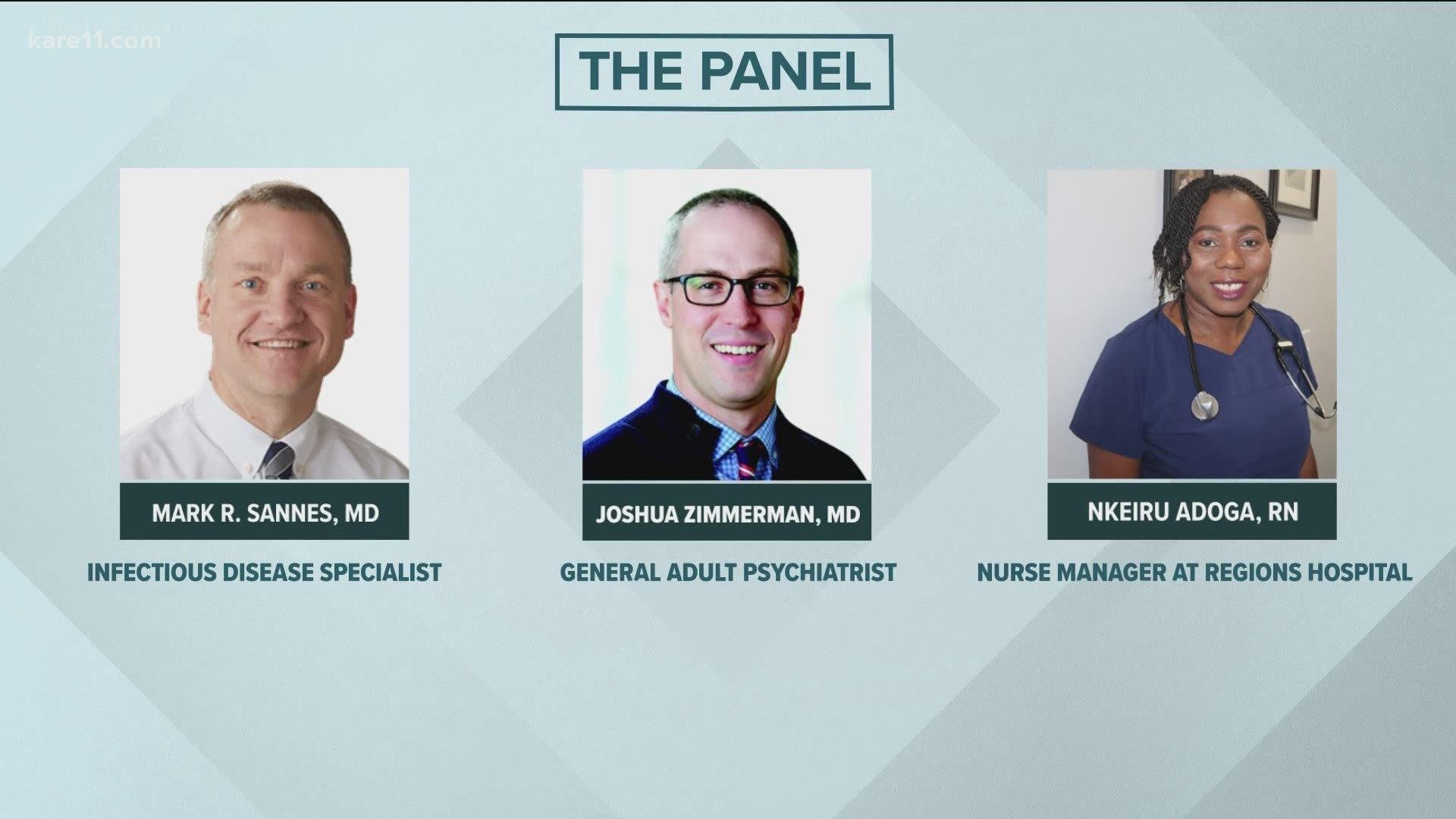MINNEAPOLIS — One year ago, coronavirus was starting to affect our world, and it's shadow was not far from the state of Minnesota.
Health care workers were among those hardest hit, people like Dr. Mark Sannes, Infectious Disease Physician at Methodist Hospital, Psychologist Dr. Josh Zimmerman and Nkeiru Adoga, a nurse manager at Regions Hospital.
The last year has been one of struggles and growth, adapting and learning, going back to when the three first learned about the disease.
"A year ago I thought it was something far away," Adoga said.
"I remember really not knowing what to expect because we heard so many different reports on whether the illnesses were severe or mild and it turned out it was both," Dr. Zimmerman said.
"In many respects this was… our worst dream kind of come to life," Dr. Sannes said.
Dr. Sannes remembers initial medical advice being flat out wrong, like when medical professionals first advised against wearing a mask
"Did a complete 180 on that once we knew that this virus was transmitted without people ever knowing they were sick," he said.
2020 was a year with no shortage of challenges.
"It was the lack of testing capability that we were experiencing, lack of materials, lack of response, I think, in getting what we needed down from the CDC and feeling like we had to go on our own to make this work," Dr. Zimmerman said.
There was a level of stress felt on all inpatient teams. It meant having mental health support for staff members.
"It was just an overwhelming wave of the same thing and people died and people got sick in massive, massive numbers."
Also the need for patients to completely isolate from their own family.
"It's not having family members there for the patient when you really feel like they needed it the most," Adoga said.
Innovation was a necessity. Masks were recycled for five days of use.
"We had to be creative, how do you separate the infected from the non-infected group," Adoga said.
However, all the adversity brought the staff together.
"I saw people rise and shine," she said. "We saw a lot of skill that they have that we never knew they had before."
Looking ahead to 2021, the three say there's reason for optimism, after a year of unparalleled uncertainty.
"I'm hopeful the losses our patients experienced will gradually be repaired," Dr. Zimmerman said.
"Hope and optimism and that life will return to anywhere close to normal," Adoga said.
"I think continued collaboration among the health systems with a terrific health department and direction from the governor's office I think will get us ahead of a lot of other places in the country on how well we're able to vaccinate, and I think 2021 is going to look very different by the time it's finished. Hopeful for a mask-less finish to this year," Dr. Sannes said.
Dr. Sannes says it's looking like the first half of this year, will be very similar to how things look now with masks and social distancing staying put.
It won't be until our vaccine supply increased, and a significant proportion of the population is vaccinated, that we can go back to normal life.

